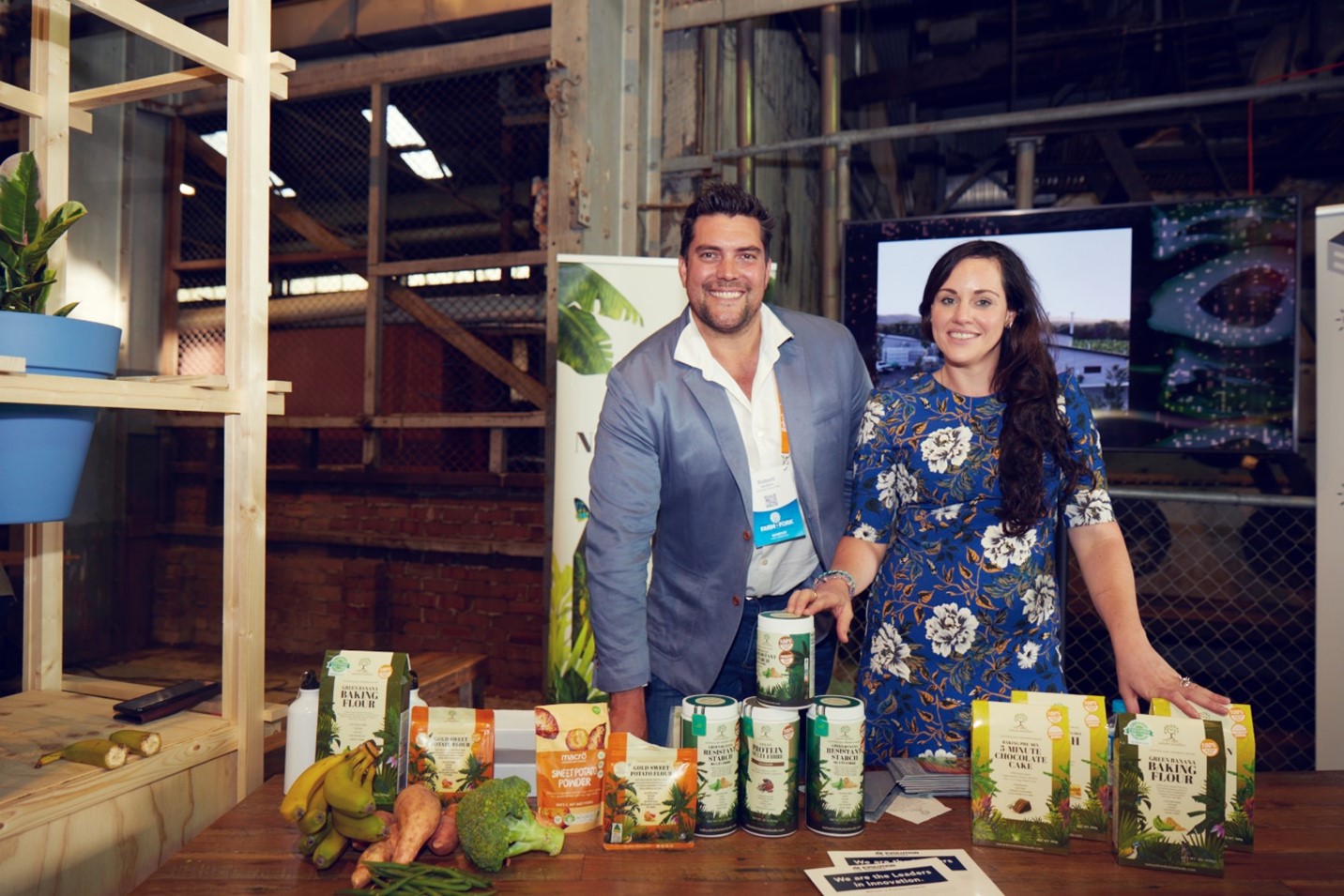
A North Queensland banana grower has transformed its excess fruit not attractive enough for retailers, from waste product rotting away in the back paddock into a new product and a new revenue stream.
Second generation farmer Robert Watkins and his wife Krista are among Australia's largest banana growers, suppling grocers with Lady Finger bananas. Despite the labour and resource intensity of growing this variety (up to 30% more labour than other varieties) a large proportion of their crop each year doesn't meet the colour and shape requirements of retailers. Sadly, for many years, tonnes and tonnes of these delicious and nutritious bananas would end up in waste piles in back paddocks for the local wallabies and other wildlife to graze on.
However, all that changed when, thirteen years ago, Rob accidentally drove over a waste pile of these bananas and noticed a fine powder was created in the process.
Rob's problem-solving brain went into overdrive as he began to investigate whether his banana waste could be turned into a banana flour.
“What we’re beginning to realise is that so many solutions to the world’s problems are just sitting in waste piles across Australia."
This accidental discovery kicked off a five-year quest, involving connecting with universities and researchers to determine the nutritional benefits, as well as developing an automated production line that cut out backbreaking production and increased volumes to 1 tonne per shift.
They say the two keys to their success were working with research universities to explore the health benefits of the product and getting the production technology and machinery right.
Engaging with universities – entirely new ground for the business – was vital to discovering the clinical benefits of banana flour for those with gut health issues. As a result of persisting with incredibly capital and time intensive clinical trials, medical referrals are now one of the key reasons people are buying their flour.
With an eye on reducing their waste and increasing the simplicity of their manufacturing process, Rob and Krista developed the designs for the new manufacturing facility in house. They relied on their passion to see their project succeed and applied practical problem solving along the way to refine their processes. Developing these skills in house was a practical and strategic decision.
Throughout, they found that there was a lack of multi-skilled people that were able to traverse the blend of technical machinery skill and the nutritional and chemistry knowledge required to create their new equipment – especially where they are in the Tablelands Region, Queensland.
After five years of development, the result was a world first (and now patented) flour processing facility that cut production time and continues to underwrite the commercial success of their operation. As well as cutting waste from their banana growing operations and developing an entirely new business (and revenue stream) from their flour products, the new machinery reduced the physicality of the tasks in the business and broadened the range of people and skill sets needed in their business. Rob and Krista focused heavily on the design of their control systems, to ensure that human error was minimised and to enable them to easily onboard new staff to operate the line.
"If we had just kept doing what we’ve always done, we would have achieved the same things we always had. Our principle is that when you get a block of dirt, you’ve to find ways to make it better than when you got there.”
When recruiting new staff, the team now look for the right attitudes and open mindedness to keep learning and grow with the job. With the digitalisation of the production line, they’re also finding that they need some technology skills to understand software programs that run the automated facilities.